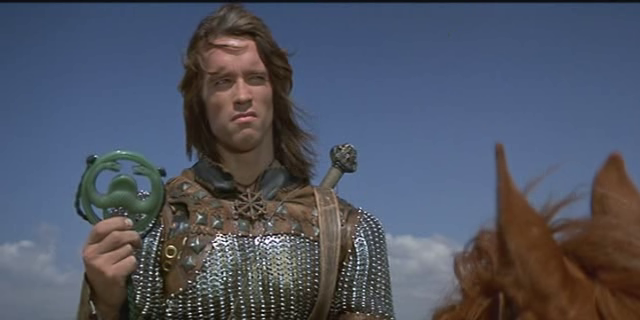As I have whinged about here many times over the years, the biggest difficulties for me about the preparation for new campaigns has always been finding some kind of decent motivation for why the PCs should care about the main threat or antagonist of the campaign, in a way that gets the players invested beyond the basic “Well, that’s what the GM wants us to do”. I’m not a fan of this type of typical campaign and find it much more interesting and rewarding when the players take the oar and pick the direction they want to sail in next. Most often the excuses that pass as motivations are “we’re the heroes and that’s what heroes do” or “someone’s paying us to do it”. Both of these work, of course, for a basic game, but I always aspire to have my campaigns to be something more than that.
 But you can absolutely overthink these things, too! After some not very impressive attempts at setting up campaigns in which the characters are motivated by a desire to rediscover the lost history and arcane secrets of the land, I decided to go back to the basics and embrace classic Sword & Sorcery instead of trying to do something clever and original about it. In the end, actually playing is the whole purpose of the entire exercise. Exploring new ways of what a hero can be in fantasy today and going is better left to other forms of creative outlets. What a game needs to be first and foremost is playable.
But you can absolutely overthink these things, too! After some not very impressive attempts at setting up campaigns in which the characters are motivated by a desire to rediscover the lost history and arcane secrets of the land, I decided to go back to the basics and embrace classic Sword & Sorcery instead of trying to do something clever and original about it. In the end, actually playing is the whole purpose of the entire exercise. Exploring new ways of what a hero can be in fantasy today and going is better left to other forms of creative outlets. What a game needs to be first and foremost is playable.
While conventional wisdom (that is, ultra-orthodox purists) tells us that Sword & Sorcery is never about assaulting the Dark Lord in his castle from where he is trying to conquer the world, an awful lot of classic Sword & Sorcery stories actually do conclude with the heroes assaulting a powerful evil sorcerer in his castle and putting an end to his plans to conquer the world (or at least the kingdom). It’s just that the hero doesn’t do it for the purpose of saving the kingdom or its people. (Unless it’s Conan, who literally does that in The Hour of the Dragon.)
I really quite like the idea of having a Sword & Sorcery campaign with the goal to defeat an evil sorcerer and had a very interesting conversation about how I could come up with decent motivations for the PCs. And the best suggestion I got was basically “let the players decide”.
 At first the whole thing felt a bit backwards, because it goes completely against the common storytelling conventions of RPGs, where you begin with the player as ordinary schmucks doing regular adventure stuff, and hopefully by the end of the first adventure the true nature and goal of the campaign will be revealed. But you really don’t have to. Nothing is stopping anyone from starting a new fame with the pitch “We’re going to play a campaign in which you play characters who have all sworn to find and kill Wangrod the Vile.” That actually sounds a lot more exciting than the usual “we’re going to play a game in which you play adventurers and the story will be revealed later”. Nobody will be disappointed that you spoiled something that would be revealed within the first 5% of the story. That’s what people in the business call “the premise”.
At first the whole thing felt a bit backwards, because it goes completely against the common storytelling conventions of RPGs, where you begin with the player as ordinary schmucks doing regular adventure stuff, and hopefully by the end of the first adventure the true nature and goal of the campaign will be revealed. But you really don’t have to. Nothing is stopping anyone from starting a new fame with the pitch “We’re going to play a campaign in which you play characters who have all sworn to find and kill Wangrod the Vile.” That actually sounds a lot more exciting than the usual “we’re going to play a game in which you play adventurers and the story will be revealed later”. Nobody will be disappointed that you spoiled something that would be revealed within the first 5% of the story. That’s what people in the business call “the premise”.
Doing so allows you as a GM to prepare a lot of material in advance, but also leave it up to the players to decide who their characters will be and what their motivations are. You set up the goal, but the players create the motivation. Motivations that they care about and that feel interesting to them. You could of course prepare what the motivations of the PCs will be and tell the players to create characters around that. But if a player isn’t really feeling the excitement for that motivation, that doesn’t work out that well. As it concerns the story and events of the campaign, the motivations of the PCs don’t really matter. As long as the players keep working on the goal to confront and kill Wangrod, things will play out the same way.
Conan the Barbarian might actually be a really good reference for how such a campaign could be structured. When Conan is freed and sets out to find Thulsa Doom, he has no idea where he is or even who he’s looking for. The only clue he has is the standard carried by the warriors who raided his village. First he tries to make a deal with a witch who seems to know something about the symbol, but that ends up getting him nowhere. Then he raids the snake temple looking for more clues, and finds the emblem which tells him he’s on the right track. After the raid, he’s taken to the king who reveals that he’s also an enemy of the sorcerer and finally gives Conan a name. Because he wants his daughter back from the snake cult, he provides Conan with the information where to find the sorcerer and things play out from there. I think that could be a really cool structure to be used for a campaign. The players make their character tailored to be seeking an evil sorcerer and defeating him for whatever reason. Information about who exactly the sorcerer is, where they can find him, and how they can defeat him can be very good motivations to go on all kinds of otherwise unconnected adventures. And information of this kind can be put into the possession of basically every NPC, which makes this structure very flexible. If one adventure doesn’t work out and they don’t get the information there were promised, they can always get it somewhere else. If they leave one adventure for later, you can always just switch around what specific information the respective NPCs have to share to keep the flow of the ongoing investigation. You’re also not strictly married to any specific length for the campaign. When things seem to drag on, you can always have the NPCs give out bigger chunks of information, and should everyone want to make the campaign longer, you can throttle down the rate of progress that is made with each adventure. And even with the sorcerer dead, it doesn’t have to be the end of the campaign. Along the way the players might well have made many friends and new enemies that can be worth coming back to once the original goal has been completed.


Einzige Titel der “Two Hour Wargame” Serie (“Larger than Life : Director’s Cut”, “Lovecraft’s Revenge”, “Future Tales”) beinhalten einen “Geschichtenerzeuger”, wo der Held eine bestimmte Anzahl von “clues” sammeln muss, bevor er den Hauptbösen treffen oder sogar identifizieren kann.